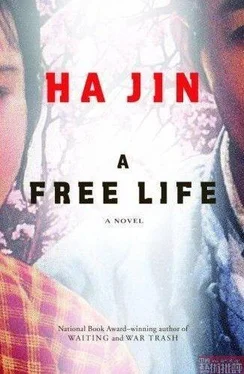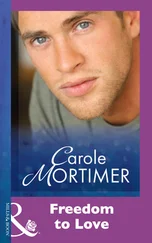Still in disbelief and confusion, the Mitchells wanted to consult another doctor for a second opinion. Dr. Williams encouraged them to do that and had the results of Hailee's blood test and bone marrow biopsy faxed to an expert, Dr. Caruth at Emory Hospital. The following day Dr. Caruth sent back his diagnosis, which was also leukemia.
After crying in each other's arms, Janet and Dave took their daughter to Gwinnett Hospital, where the child went into chemotherapy. A transparent tube was put into a vein in Hailee's chest, through which anticancer drugs were pumped into her bloodstream. Her initial response to the treatment frightened her parents. Her face turned greenish and she often vomited, unable to stop groaning. She seemed too tired to cry loudly. No matter how Janet and Dave coaxed her, she'd hardly eat any solids, though she still drank fruit juices and milk. Then the girl's hair began falling out, but Dr. Williams said this was normal. She assured the Mitchells that these side effects would go away and that her hair would grow back once the chemotherapy was stopped.
Pingping and Nan went to see Hailee one morning in mid-March, bringing along a jar of fresh fruits for Janet, who often forgot to eat these days. Hailee smiled at Pingping and called her "Aunt"; then she called Nan "Uncle," but was too ill to raise her arms to let him hold her.
"Do you still feel pain here?" Pingping asked, and patted her forearm, pricked by needles. "No," she mouthed.
Nan was about to stroke her cheek, but Janet stopped him-the girl's immune system had been so weakened by the medication that nobody was supposed to touch her face without wearing a glove.
Despite Hailee's good spirits, she looked withered and had lost weight, her skin tight over her strong bones. "Eat more food," Ping-ping told her. "You will recover soon, like new."
The girl smiled again, as if she had grown a few years older in just two weeks. Her mother told the Wus that Dave would come in the evening to attend to Hailee. They had a foldaway cot in the closet, so Dave could sleep beside their daughter at night. Before coming to the hospital he had to change and shower at home, as the doctor had instructed.
An old nurse came in to put some medicine into the intravenous line. The Wus took their leave, having to get to the Gold Wok before ten a.m.
Afterward they called the Mitchells now and then to see how Hailee was faring. Three weeks after the chemotherapy had started, another blood test showed a remarkable reduction of white blood cells. Apparently her leukemia was in remission. The girl was regaining her strength and began to eat solids; her pulse was stronger and even her voice sounded lively again. Both Janet and Dave were grateful and hopeful, though they were told that it would take a long time for their daughter to recuperate fully.
Once in a while Janet would come to the restaurant to talk with the Wus about Hailee, asking them how to locate the child's biological parents so that she could know something about her family's medical history. Pingping even called Seattle and talked to Ruhua, the fruity-voiced agent, and begged her to help the Mitchells. Ruhua promised to inquire into this matter, but she phoned back a week later, saying there was no way she could find any trace of Hailee's biological parents-the Chinese side had just hemmed and hawed without answering her questions. On behalf of the Mitchells, Nan wrote directly to Mr. Peng, the head of the orphanage in Nanjing. The man replied in less than a month and apologized for his inability to assist the adoptive parents, because the baby girl had been found near a local pig farm and there was no way they could identify her biological mother, who could have lived in any one of the two hundred villages in the county. He expressed the solicitude of the orphanage's leaders and staff, saying Hailee was still their daughter.
NAN had read and reread all the poetry books recommended by Dick. He liked them but felt Robert Frost and W. H. Auden were more to his taste, so these days he resumed reading Frost. In addition, he had been writing poetry in English whenever he could. Lately he had focused on a longish poem entitled "Heaven," which he planned to dedicate to Dick, as a surprise. Hard as he tried, he couldn't produce anything he liked. His lines were devoid of gravity and verve, and he could tell he was getting nowhere if he continued this way. He had to find a different angle from which he could recon-ceive his project, which had the ultimate goal of making his poems dark, luminous, and starkly elegant, a quality he vividly remembered from the paintings by Kent Philips. He knew that, living in Georgia, he couldn't possibly present that kind of landscape in his poetry, but he didn't have to avail himself of the physical world. What he should have was a restless soul from which vibrant lines might originate.
For months he couldn't feel excited about what he wrote, as if his mind hadn't wakened from a dormant state yet. He rented some movies and watched them late at night, but they didn't help create any poetic impulse either, and he got tired of them soon. He went to downtown Atlanta on a Saturday afternoon in April to attend a celebration of the imminent reversion of Hong Kong to China, but he felt more lonesome among the large crowd, though a soprano, singing at the proscenium with the curtain behind her, moved him to tears with two songs that brought back the memory of his childhood. He wondered whether this inert state of his mind might be connected to the fact that for many years he hadn't met a woman he loved wholeheartedly and with the passion from the depths of his soul. Of course there was Beina, who still bewitched him. But he had no idea where she was now, perhaps still in Harbin. If only he knew how to get in touch with her.
By now he honestly loved his wife, but in a steady and mundane way. With Pingping he felt peaceful. He took care of the restaurant and the yard work while she spent more time with Taotao, cooking breakfast for the boy and supervising him in his study. What's more, she kept their books, wrote checks, went to the bank to deposit or transfer money every day, and paid taxes by the end of each season. Their solitary life had strengthened their mutual dependence and emotional attachment, which had ripened into love and trust. Still, the marriage didn't offer the kind of excitement that Nan hoped could spur him into song. He imagined that what he needed was an overpowering emotion that could become an inspiration.
His desire for poetic stimulation often made him think of those women in literature who inspired poets and even became the subject of poetry, such as Petrarch's Laura, Dante's Beatrice, and Yuri Zhivago's Lara. If only there had been such a woman in his life! A woman just the thought of whom would set his soul on fire. He believed that if he had met such a woman, he might have written like a possessed devil and his mind could have turned into a fountain-head from which lyrical lines would overflow. Sometimes he realized this was silly, but he couldn't help himself and kept indulging in the illusion.
Out of this secret sentiment he rented the film Doctor Zhivago. He and Pingping watched the movie until two a.m. The picture touched them so deeply that they both felt sick for several days. They recommended it to Niyan and Shubo, who also enjoyed it. It reminded all of them of the life they had led in China, where, similar to the turbulent Russia, human lives had been worthless, where hatred and blind rage had run amok, and where the gun ruled the law. For days Pingping had a stuffy nose, and whenever they talked about the scenes in the movie the Wus would mist up a little.
Yet they were also moved by the beauty and strength of the film. Nan wished it had shown how Dr. Zhivago managed to write poetry when forced to serve the Bolsheviks. The poet in the story wasn't shown trying hard to develop his art. Once, in a deserted ice-clad mansion, he did take up his pen and write while Lara was sleeping and wolves were howling. Still, that couldn't explain how he became an accomplished poet.
Читать дальше












